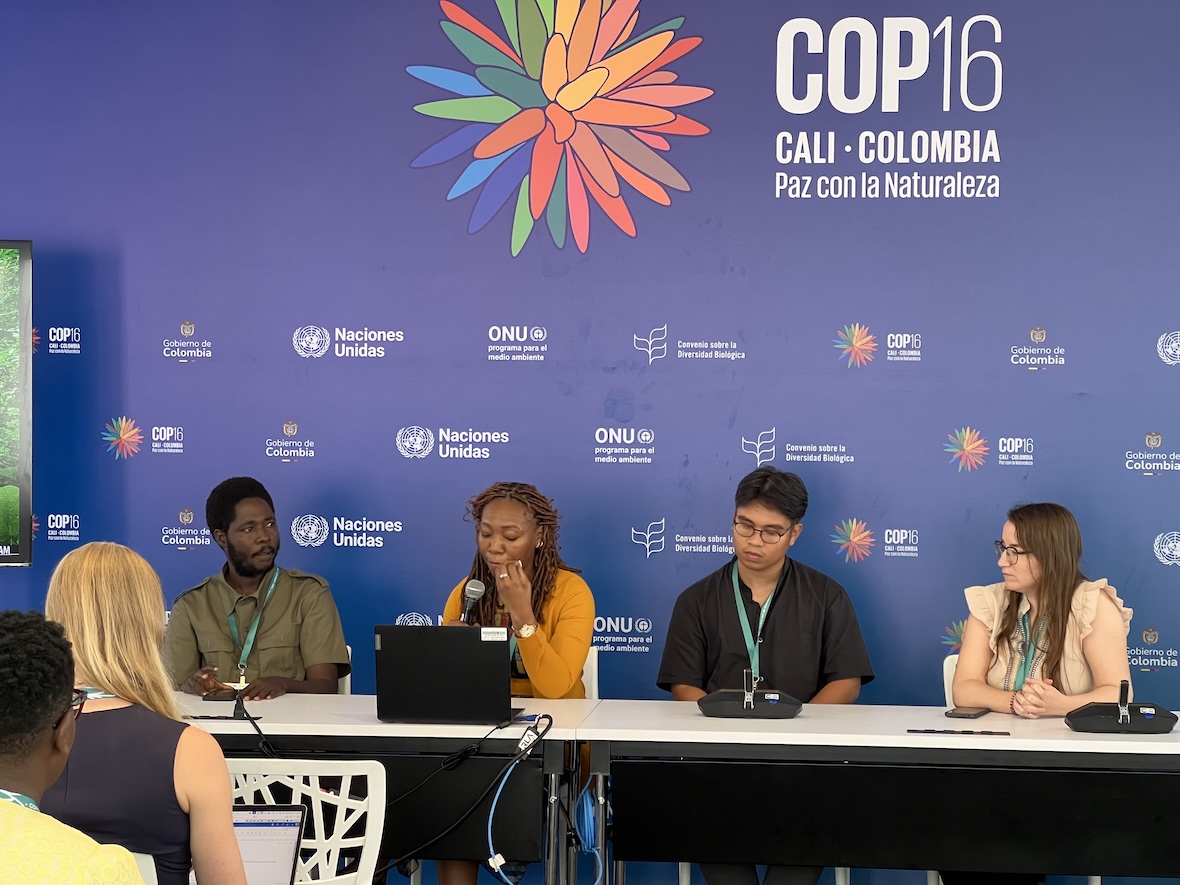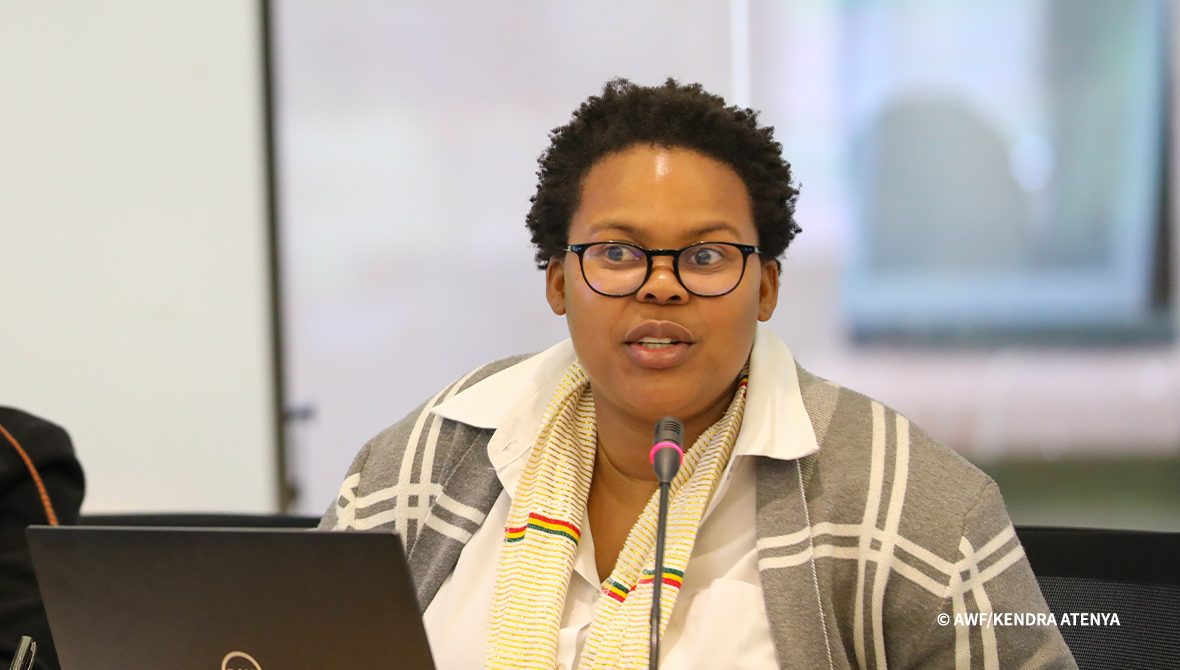Why Africa’s Youth Voice is Vital to COP16 Biodiversity Talks

Africa’s role in the ongoing United Nations Convention on Biological Diversity (CBD) Conference of Parties (COP16) is critical. Home to 25% of the world’s biodiversity and a predominantly young population, Africa's engagement in these crucial negotiations will help shape the future of conservation efforts.
This COP16, the first biodiversity conference since the adoption of the Kunming-Montreal Global Biodiversity Framework (GBF) in 2022 convenes under the theme "Peace with Nature." Governments will assess their progress in implementing the GBF and align National Biodiversity Strategies and Action Plans (NBSAPs) accordingly. The convention will tackle crucial issues, including resource mobilization for conservation and finalizing mechanisms for fair and equitable access to the benefits from genetic resources.
Over 190 countries are represented at COP16, including governments, Indigenous Peoples, local communities, businesses, youth, civil society, and academia. But this year, African youth—Africa’s largest demographic group—are positioned to make an even greater impact.
The African Wildlife Foundation (AWF) and the African Civil Society Biodiversity Alliance (ACBA) are striving to ensure that Africa’s youth and civil society play a central role in shaping the future of biodiversity conservation. Recognizing that the next generation must be empowered to lead, AWF and ACBA emphasize youth leadership and civil society engagement as key drivers of sustainable change on the continent.
Through initiatives like the AWF Charles R. Wall Young African Policy Fellows Program, AWF is actively training young African leaders to participate meaningfully in international biodiversity governance. This program provides young professionals with hands-on experience in global biodiversity negotiations, with a focus on forums such as the Convention on Biological Diversity (CBD).

Simangele Msweli is AWF's Senior Youth Program Manager.
“Our young people are not just the future—they are the present,” says Simangele Msweli, Senior Youth Program Manager at AWF. “Through our programs, African youth are actively shaping conservation policy at local, national, and global levels. COP16 is a critical platform for them to be heard and to influence decisions that will impact biodiversity for decades to come.”
Five Policy fellows will be joining the AWF delegation at COP16. These fellows have undergone rigorous training, learning the intricacies of the CBD, and honing their negotiation skills. In preparation for COP16, AWF hosted leadership dialogues, including a discussion with seasoned negotiators like a representative from Malawi to address Africa’s unique biodiversity challenges.
“Our fellows will do more than just observe,” Msweli emphasizes. “They will engage in leadership dialogues, contribute to side events, and participate directly in the negotiations. Their goal is to ensure that Africa’s youth perspective is not only heard but also acted upon.”
Why Youth Engagement Matters
“Africa is a young continent,” Msweli notes, “but many youth feel disconnected from global processes like COPs. We need them engaged because the decisions made at COP16 will define their future.”
The Global Biodiversity Framework (GBF) calls for a "whole-of-society" approach, making youth critical partners in ensuring the framework's effective implementation. More importantly, young people can serve as watchdogs, holding governments accountable for their commitments.
“Youth must be the ones asking tough questions,” Msweli insists. “Are governments delivering on the promises made in the GBF? How can we ensure that biodiversity conservation is integrated into national development plans?”
AWF at COP16
AWF’s Policy Fellows play active roles across three key areas:
- Side Events: The fellows will share their insights on critical biodiversity issues. For example, Ignatious Kudakwashe from Zimbabwe will participate in a session organized by the Southern African Development Community (SADC) Secretariat. Meanwhile, Sana Balde from Guinea-Bissau will co-host an event with the POST-2020 Project, and Elizabeth Kamara from Liberia and Maissa Louhichi (Tunisia) will join a Global Landscape Forum event on marine biodiversity.
- Leadership Dialogues: The fellows will engage with influential stakeholders, including representatives from the African Development Bank and the African Union Commission. These discussions are essential for understanding how the GBF will be implemented across Africa and how young leaders can support this work.
- Negotiations: Each fellow will monitor key agenda items and ensure that Africa’s priorities—particularly those of its youth—are reflected in the final agreements. They will focus on biodiversity finance, equitable access to resources, and stronger protections for Africa’s natural assets.
ACBA at COP16
Yemi Katerere, ACBA Coordinator, echoes Msweli’s concerns about the role of youth and the importance of resource mobilization. “This isn’t about Africa begging for money,” Katerere says. “The Global North, which consumes 74% of the world’s resources, has a responsibility to contribute to biodiversity conservation.”
ACBA’s work focuses on ensuring that resources are not only promised but are directed to the right places—local communities, Indigenous Peoples, youth, and women’s groups on the frontlines of conservation. “We need to ask tough questions,” Katerere emphasizes. “How will funds be localized? Will they truly benefit those who need them most?”
Expectations from COP16
Katerere stresses that at COP16, the legal and sustainable use of biodiversity must remain a priority and should not be compromised. It needs to be fully integrated into African countries’ NBSAPs to ensure that both commercial and non-commercial biodiversity harvesting aligns with conservation goals.
Regarding the funding gap, particularly in achieving biodiversity targets, Katerere agrees with Msweli that financing should be a key focus of the discussions at COP16.
“We hope the talks will result in concrete solutions to boost public funding, rather than relying on the private sector, which often promotes greenwashing and false solutions,” Katerere explains. “This includes addressing harmful subsidies and military budgets in wealthy countries, as well as acknowledging the historical exploitation of Africa’s resources.”
Katerere also highlights the importance of protecting African environmental defenders, many of whom face threats and violence for their work. “We expect COP16 to bring attention to their plight, with stronger protections put in place to safeguard their rights and support their critical role in conservation.”
>>Read more on how COP16 can deliver biodiversity goals for Africa.